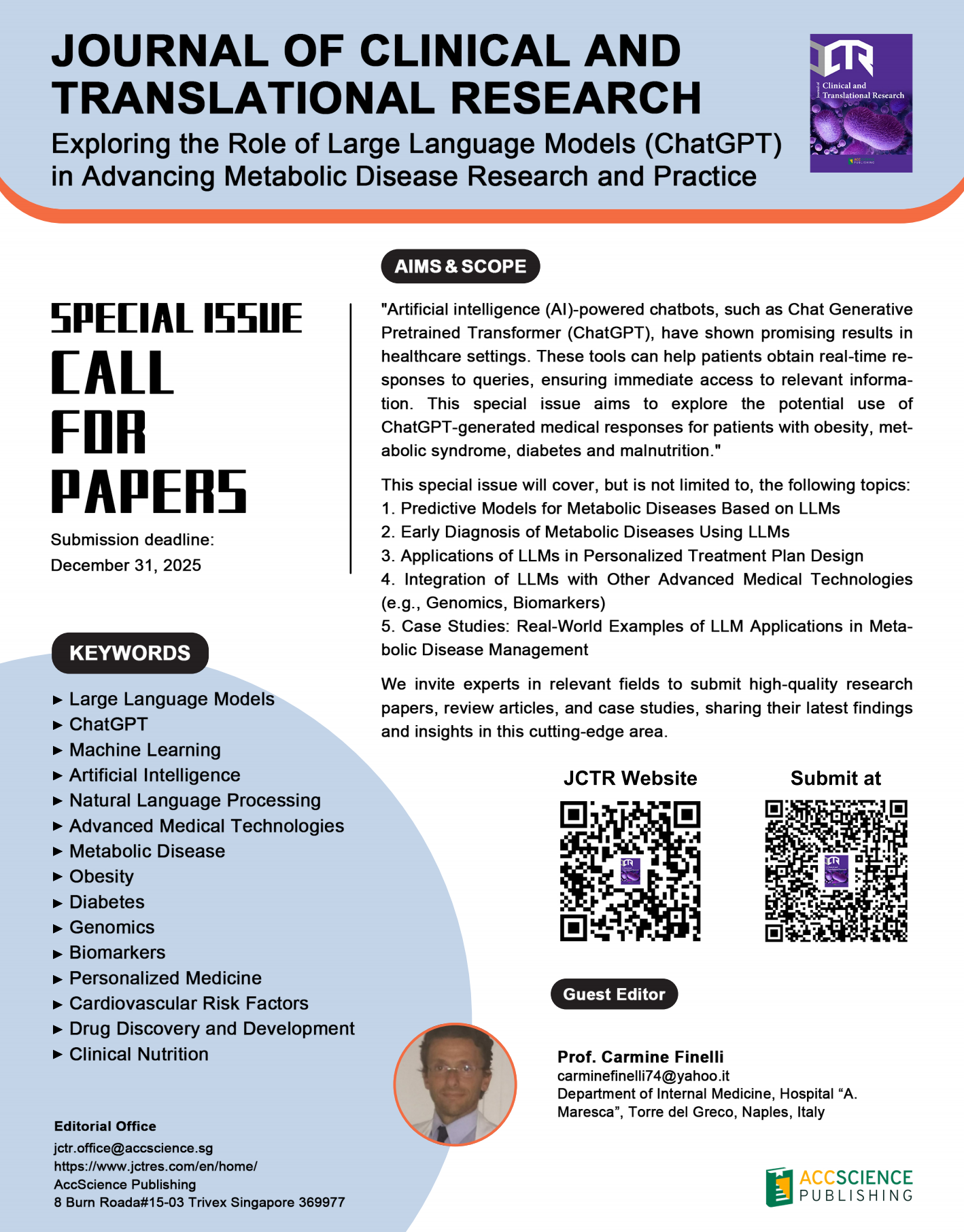Exploring the Role of Large Language Models (ChatGPT) in Advancing Metabolic Disease Research and Practice

"Artificial intelligence (AI)-powered chatbots, such as Chat Generative Pretrained Transformer (ChatGPT), have shown promising results in healthcare settings. These tools can help patients obtain real-time responses to queries, ensuring immediate access to relevant information. This special issue aims to explore the potential use of ChatGPT-generated medical responses for patients with obesity, metabolic syndrome, diabetes and malnutrition."
This special issue will cover, but is not limited to, the following topics:
- Predictive Models for Metabolic Diseases Based on LLMs
- Early Diagnosis of Metabolic Diseases Using LLMs
- Applications of LLMs in Personalized Treatment Plan Design
- Integration of LLMs with Other Advanced Medical Technologies (e.g., Genomics, Biomarkers)
- Case Studies: Real-World Examples of LLM Applications in Metabolic Disease Management
We invite experts in relevant fields to submit high-quality research papers, review articles, and case studies, sharing their latest findings and insights in this cutting-edge area.


